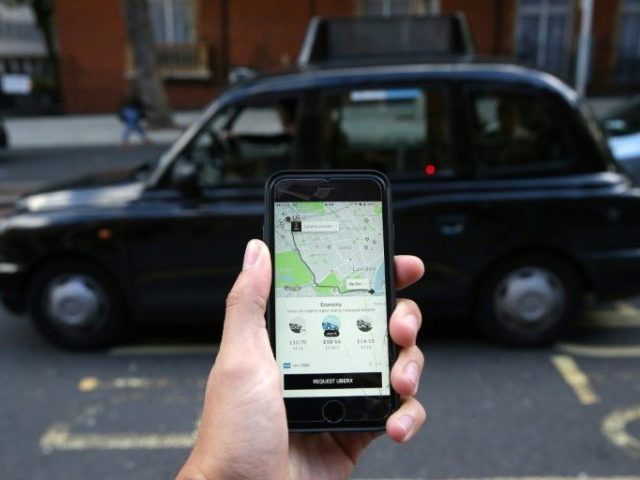A European Union court has issued Uber a setback by ruling that the ride-sharing app is operating as a transport company, not a tech company, and is subject to transport regulations.
The Wall Street Journal reports that the European Court of Justice ruled on Wednesday that Uber is to be regulated as a transportation business rather than a technology business. Uber has attempted to lighten regulations placed on the company, making this latest news a blow to the company’s recent efforts, but the EU courts ruling marks a huge win for authorities that have attempted to hold Uber to the same accountability and regulations as traditional taxi services. Uber is unable to appeal the European Court of Justice’s decision but may seek other avenues to defend their business in the court.
Uber has had a long history of battling government regulations and taxi companies but has come under intense scrutiny in Europe specifically. Italy, Germany, Belgium, the Netherlands, Spain, Hungary and even London in the UK have banned the ride-sharing app from operating, while in other countries violent protests have erupted as taxi drivers oppose the company. Uber has argued in the past that they are not a transportation company but rather an online platform, a business type that is protected from overregulation under EU law.
In the European Court of Justice’s ruling, the court stated that drivers using their own vehicles to transport passengers using Uber, “must be classified as ‘a service in the field of transport.’” Uber stated that this ruling would likely not change how they operate in Europe as they already abide by EU transportation service laws, but the ruling destroys any chance Uber may have had of pushing back regulation imposed on them across the EU and may lead to further restrictions being placed on the service by regulators and government bodies.
This case originated from a claim made by Barcelona-based transportation association Elite Taxi, who initially requested penalties from Uber for running their low-cost Uberpop service without taxi licenses or any authorization from the city whatsoever. Elite argued that Uber had an unfair advantage over traditional taxi services as they were offering a transportation service without the costs that regular taxi services are forced to pay for cars, drivers, licenses, and other related expenses. Neither Uber or Elite have responded to a request for comment by the Wall Street Journal on the EU ruling.
Lucas Nolan is a reporter for Breitbart News covering issues of free speech and online censorship. Follow him on Twitter @LucasNolan_ or email him at lnolan@breitbart.com.

COMMENTS
Please let us know if you're having issues with commenting.